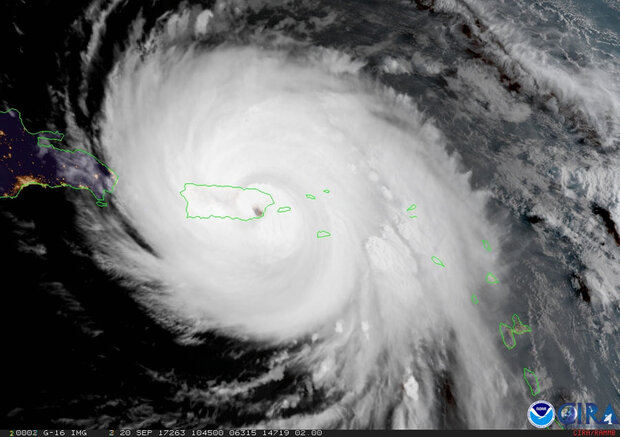Projecting compound tropical cyclone-heat extremes in a changing climate

Hurricane María dwarfs Puerto Rico in September 2017. Credit: NOAA

Hurricane María dwarfs Puerto Rico in September 2017. Credit: NOAA
Suzana Carmago, a Research Professor at Columbia University, is co-leading a new MAPP project in a bid to address the escalating threat of temporally compound extreme events, particularly the intersection of tropical cyclones (TCs) and extreme heat. The nexus of landfalling TCs and ensuing blackouts exacerbates vulnerability to extreme heat, a risk accentuated by the projections of increased heat extremes and more intense TCs due to climate change. Leveraging the advanced capabilities of the GFDL SPEAR modeling system, the project aims to comprehensively understand and quantify the hazards associated with compound TC-heat events. SPEAR’s unique setup, explicitly simulating TCs and their dynamic interaction with heat extremes, facilitates a more realistic assessment of the risks involved.
The research plan involves utilizing the SPEAR Large Ensemble to quantify historical and projected future hazards, crucial for accurately constraining probabilities of TC-heat occurrence and population exposure. The focus extends to exploring the physical processes shaping these compound extremes, including local feedbacks mediated through precipitation and radiation.